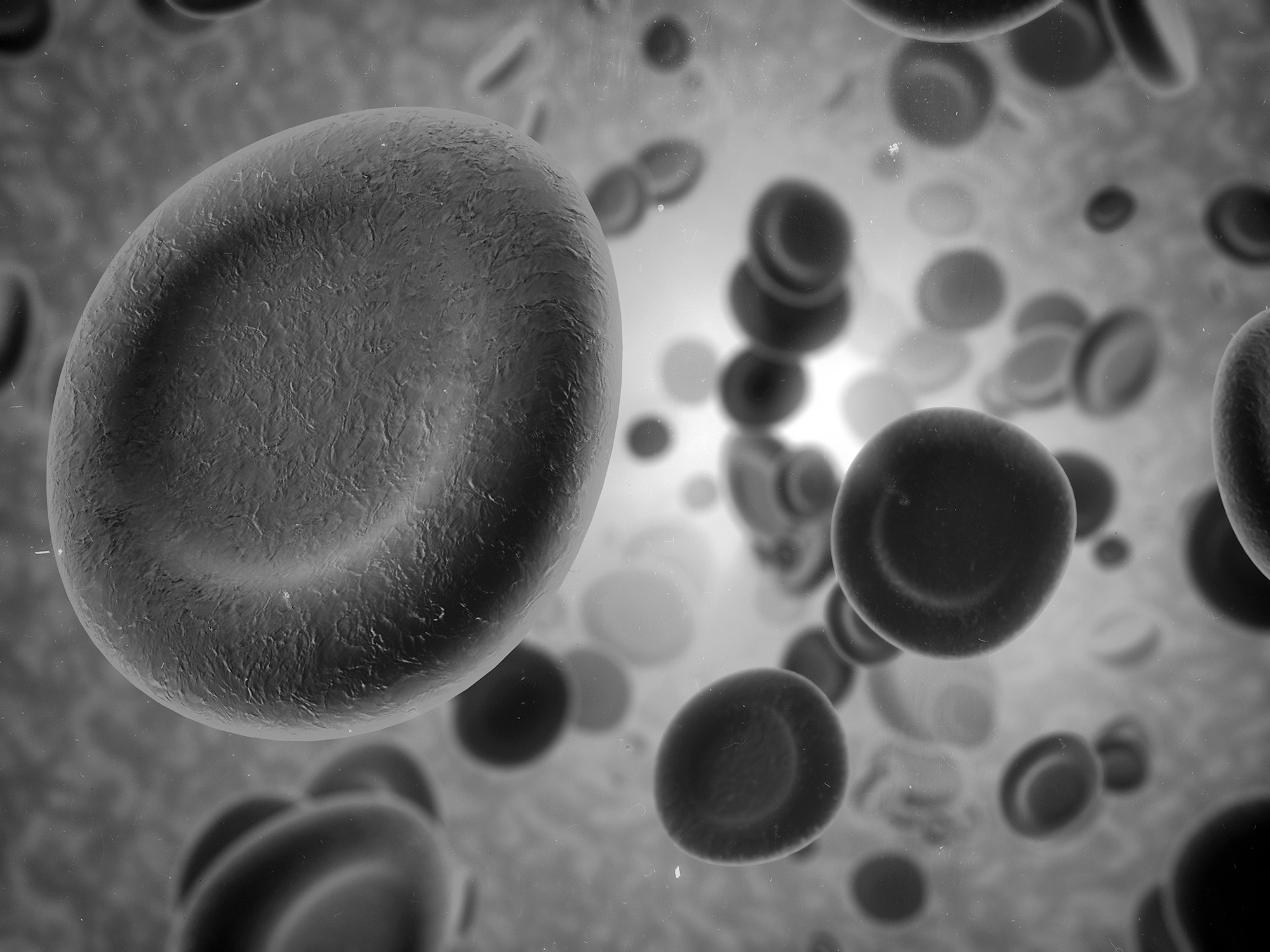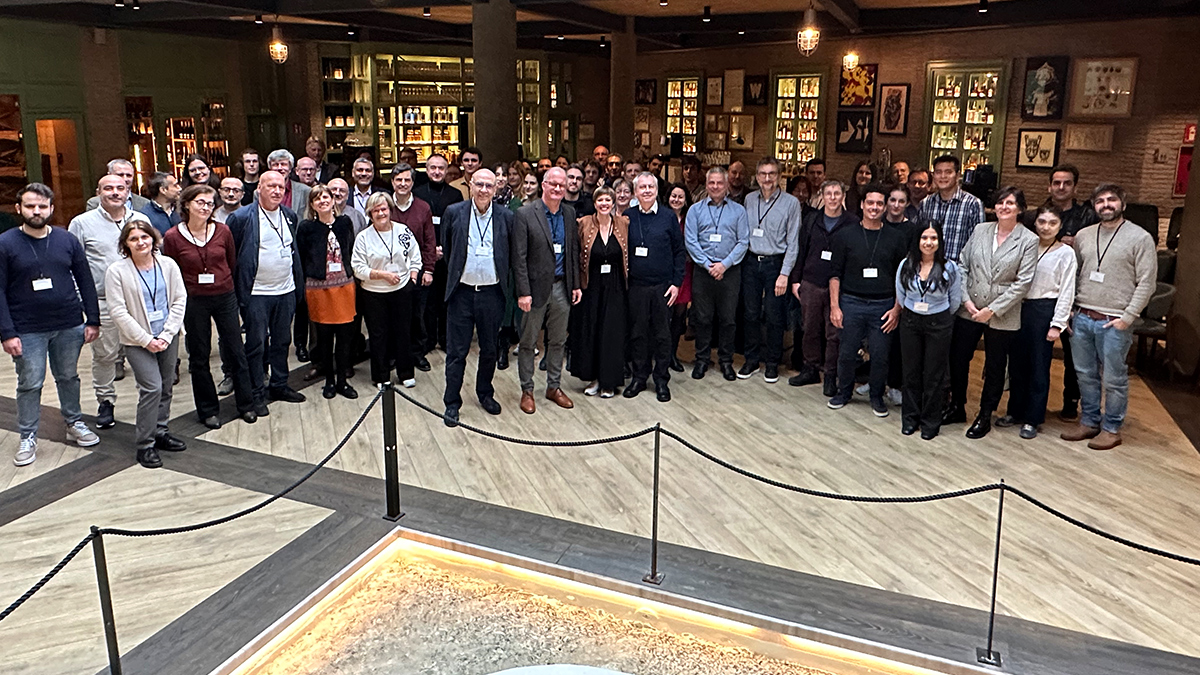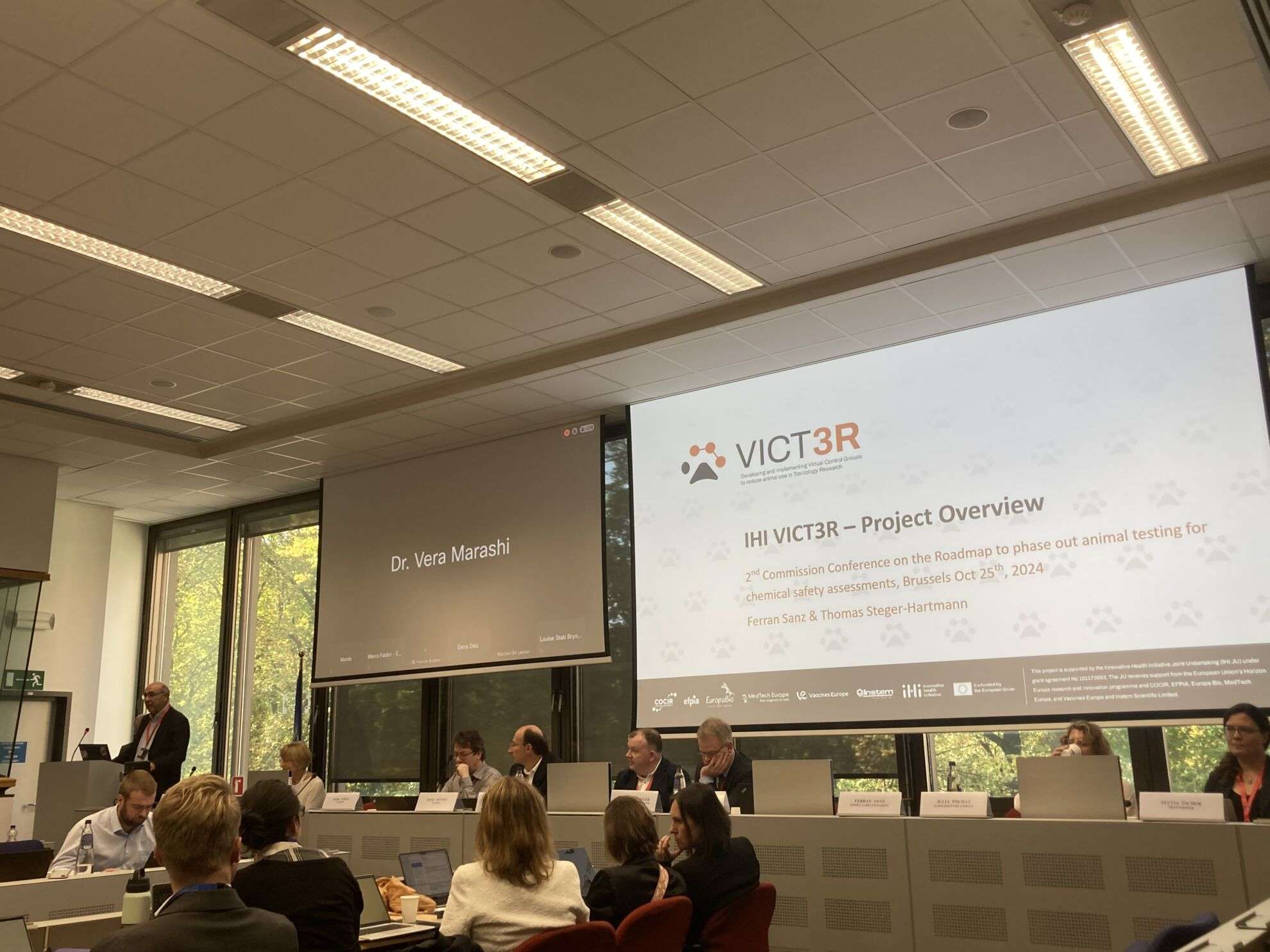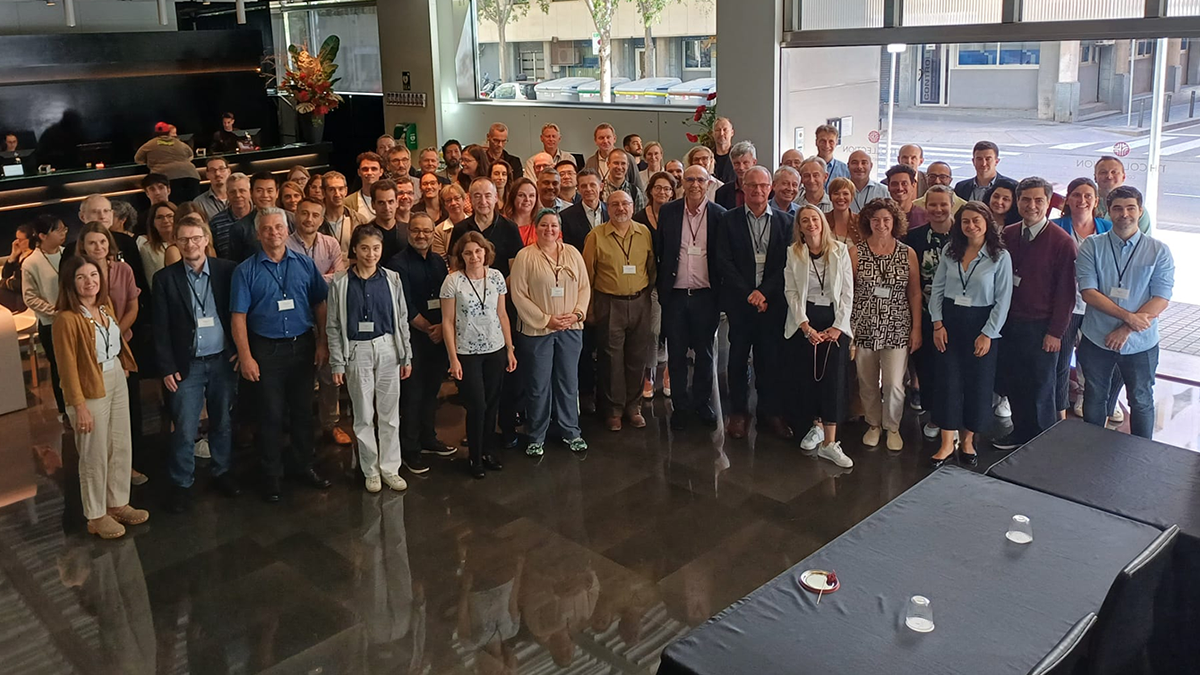


Transforming Safety Testing:
Cutting-Edge
Virtual Control Groups
for Ethical and Efficient Research
Transforming Safety Testing:
Cutting-Edge
Virtual Control Groups
for Ethical and Efficient Research
Shaping the Future of Toxicology:
Discover VICT3R!
VICT3R (Developing and implementing VIrtual Control groups To reducE animal use in toxicology Research) is a public-private partnership funded by the Innovative Health Initiative (IHI). The project is dedicated to reducing animal use in toxicology research by developing Virtual Control Groups (VCGs) — an innovative approach that enhances scientific outcomes while aligning with the 3Rs principles (Replacement, Reduction, and Refinement). Through this work, VICT3R aims to advance ethical and data-driven alternatives in regulatory testing.
Developing Virtual Control Groups
VICT3R is developing and validating VCGs as a data-driven alternative to traditional control groups. By leveraging historical control data, AI and advanced statistical methods, VCGs can provide a scientifically robust and ethically responsible solution for regulatory assessments.
Public-Private Partnership for Change
VICT3R is a public-private partnership uniting industry leaders, academic institutions, and small and medium-sized enterprises. This collaboration ensures a scientifically rigorous approach to developing VCGs while fostering broad acceptance and implementation across the biomedical and regulatory science sectors.
Data Sharing
VICT3R is building a comprehensive, high-quality database of control animal data provided by the industry, accessible to project partners, regulators, and policymakers worldwide. By harnessing historical toxicology data, the project enhances scientific rigor, improves transparency, and supports better decision-making in regulatory assessments.
Advancing Regulatory Acceptance of VCGs
VICT3R is committed to generating the scientific and regulatory evidence needed to validate VCGs, ensuring their credibility and paving the way for their integration into toxicology research and regulatory frameworks.
Reducing Animal Use
VICT3R aims to reduce animal use in toxicology research by replacing concurrent control groups with Virtual Control Groups (VCGs). This shift has the potential to decrease animal use by up to 25% while maintaining scientific integrity.
Latest News

More Minds, More Impact − New Members Join the VICT3R Community
We are proud to announce the expansion of the VICT3R consortium with the addition of new beneficiaries joining the project and organisations joining the VICT3R Associated Contract Research Organisation (CRO) Network. This growing network of organisations strengthens our mission to transform the way safety is evaluated in drug and chemical development by reducing reliance on laboratory animals. The newly joined beneficiaries include first-line industry partners

VICT3R Holds 3rd Consortium Meeting in Barcelona
The VICT3R consortium met in Barcelona on 29–30 September 2025 for its 3rd Consortium Meeting and General Assembly, marking the successful close of the project’s first year. With 67 participants attending in-person and another 60 joining online, the event brought together nearly 130 partners and collaborators from academia, industry, small and medium-sized enterprises, and members of the project’s Scientific and Regulatory Advisory Board to reflect

VICT3R: Virtually Speaking Webinar Series – Conversations Driving Change in Safety Science
VICT3R launched the first edition of its Virtually Speaking webinar series in early 2025, bringing together experts to discuss key topics relevant to VICT3R, shaping the future of toxicology and safety science. The series, which ran from January to July, combined open webinars for the broader community with closed sessions for the consortium, where we explored how to apply the concepts directly to project work.

VICT3R Featured in the ‘Lab of Tomorrow’ Video Series
We are pleased to announce that the VICT3R project has been featured in the latest episode of the Lab of Tomorrow video interview series by Eurogroup for Animals. This initiative highlights scientists who are actively working to phase out the use of animals in the regulatory assessment of drugs and other chemicals. In this new episode, Ferran Sanz (Project Coordinator, Universitat Pompeu Fabra) and Thomas

Bringing Virtual Control Groups to Life: Highlights from the 2nd VICT3R Consortium Meeting
What happens when you bring together over 120 scientists, data experts, and regulatory minds – some gathered in a conference room in Barcelona, others dialling in from around the world? You get two days filled with progress, open debate, and a shared determination to make Virtual Control Groups (VCGs) a reality. At its core, VICT3R is tackling a complex challenge: replacing concurrent control groups in

Welcome to the Launch of the VICT3R Website
We are excited to announce the launch of the VICT3R Website, which is now live! This updated website is a key resource for the VICT3R community, featuring comprehensive details about the project, our goals, publications, the latest news, and training resources. It will be the central hub for all project-related information and updates. As coordinators of our project, we would like to take this opportunity

VICT3R Showcased at the 2nd Commission Conference on Phasing Out Animal Testing
We’re proud to announce that VICT3R is presented today at the 2nd Commission Conference on the Roadmap to phase out animal testing for chemical safety assessments held in Brussels. Hosted by the European Commission, this event brings together leading experts with the aim to accelerate the shift toward animal-free safety assessments, guided by the 3Rs – Replacement, Reduction, and Refinement. The Commission’s 3Rs Roadmap is

VICT3R Kick-off meeting
The VICT3R project kicked off with an inspiring meeting in Barcelona on 26-27 September 2024! With over 70 attendees in person and more than 50 joining online, the enthusiasm and commitment to this transformative project were palpable. From the outset, participants engaged in meaningful discussions and brought forward exciting proposals, setting a positive and proactive tone for the project’s journey ahead. What made this meeting